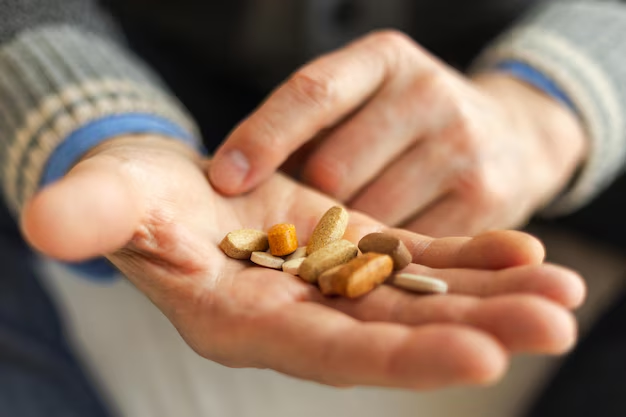Vital Nutrients: Exploring the Impact of Vitamins and Supplements on Senior Health
As we age, maintaining nutritional balance becomes essential for preserving health and vitality. The body's ability to absorb and utilize nutrients changes over time, often resulting in deficiencies that can affect energy levels, cognitive function, and overall well-being. Vitamins and supplements often play a pivotal role in filling these nutritional gaps. In this article, we will delve into the importance of these nutrients for seniors, explore common deficiencies, and provide general insights on managing them effectively.
Understanding the Nutritional Needs of Seniors
As individuals age, their nutritional requirements evolve due to several physiological and lifestyle modifications. These adjustments necessitate a greater focus on specific vitamins and minerals to support overall health and quality of life.
Key Nutritional Changes with Age
- Decreased Metabolism: Metabolism tends to slow down with age, which can affect nutrient absorption and energy levels.
- Digestive Changes: Alterations in the digestive system can lead to difficulties in absorbing nutrients essential for health.
- Bone Density: With aging, there is an increased need for calcium and vitamin D to maintain bone health and prevent osteoporosis.
- Muscle Mass: The gradual loss of muscle mass heightens the need for protein and certain supplements.
- Cognitive Health: Vitamins and supplements that support brain health become increasingly important as cognitive functions evolve.
Essential Vitamins and Supplements for Seniors
To address these changes, it is crucial to understand which vitamins and minerals are particularly beneficial.
Vitamin D
Importance: Vitamin D is crucial for bone health, as it facilitates calcium absorption. It also supports immune function and has been linked to mood regulation.
Sources: Sunshine is a natural source, but dietary sources include fortified foods, fatty fish, and supplements.
Calcium
Importance: Key to maintaining bone strength, calcium works hand-in-hand with vitamin D to prevent fractures and bone loss.
Sources: Found in dairy products, leafy greens, and fortified alternatives. Supplements can help bridge the dietary gap for those with lactose intolerance or dietary restrictions.
Vitamin B12
Importance: Vital for nerve health, red blood cell production, and DNA synthesis, B12 is a common deficiency in seniors, primarily due to absorption issues.
Sources: Naturally present in animal products. Fortified foods and supplements can assist those with dietary limitations.
Omega-3 Fatty Acids
Importance: These essential fats support heart health, reduce inflammation, and can contribute to mental well-being.
Sources: Primarily found in fatty fish like salmon, mackerel, and sardines. Plant sources include flaxseeds and chia seeds, with supplements available as well.
Addressing Common Nutrient Deficiencies
The likelihood of experiencing vitamin deficiencies tends to increase with age due to dietary changes and absorption challenges. Addressing these deficiencies proactively can improve longevity and life quality.
Identifying Deficiencies
- Regular Health Checks: Routine screenings and blood tests can identify nutrient deficiencies early, allowing corrective measures to be taken.
- Symptom Monitoring: Fatigue, muscle weakness, and cognitive issues can signal specific deficiencies requiring attention.
Effective Management
- Balanced Diet: Emphasize a varied diet rich in fruits, vegetables, lean proteins, and whole grains.
- Dietary Adjustments: Modify eating habits to include nutrient-dense foods or fortified alternatives, catering to individual dietary needs and preferences.
- Supplements: Use supplements judiciously to target specific deficiencies, always considering their interactions with other medications.
Nutritional Strategies for Senior Wellness
Healthy aging strategies require a holistic approach, integrating diet, exercise, and appropriate supplementation.
Diet and Lifestyle
- Portion Control: Smaller, nutrient-rich meals can prevent overeating and balance energy levels.
- Hydration: Encourage adequate water intake, as older adults may not experience thirst as acutely.
- Physical Activity: Regular exercise enhances digestion, absorption, and overall metabolism.
Supplement Selection Tips
🔍 Assess Needs: Understand the specific nutritional gaps by consulting with healthcare providers.
📆 Routine Integration: Develop a daily regimen that incorporates supplements at consistent times to establish a habit.
💊 Professional Guidance: Seek advice from dietitians or nutritionists to tailor supplementation to individual health profiles.
🍏 Natural Sources: Whenever possible, prioritize obtaining nutrients from dietary sources over supplements.
Conclusion: Empowering Seniors Through Nutritional Awareness
Navigating senior nutrition can be intricate, but understanding the role of vitamins and supplements offers valuable opportunities for enhancing health and well-being. By focusing on essential nutrients and addressing deficiencies with both diet and supplements, seniors can enjoy improved quality of life and vitality.
Maintaining a proactive stance on health, engaging with healthcare providers, and being informed about individual nutritional needs will empower seniors and their caregivers to foster an environment of health-oriented aging. Through this holistic approach to nutrition, seniors can gracefully embark on the path to healthy aging, equipped with the knowledge and tools necessary to thrive.

Related Topics
- How To Adjust Your Diet For Slower Metabolism
- How To Boost Immune Health With Diet As a Senior
- How To Eat For Brain Health As a Senior
- How To Eat For Eye Health As a Senior
- How To Eat Well On a Senior Budget
- How To Handle Digestive Issues With Senior-Friendly Foods
- How To Improve Bone Health Through Diet
- How To Increase Fiber Intake As a Senior
- How To Maintain a Heart-Healthy Diet In Retirement
- How To Make Healthy Eating a Priority In Retirement
